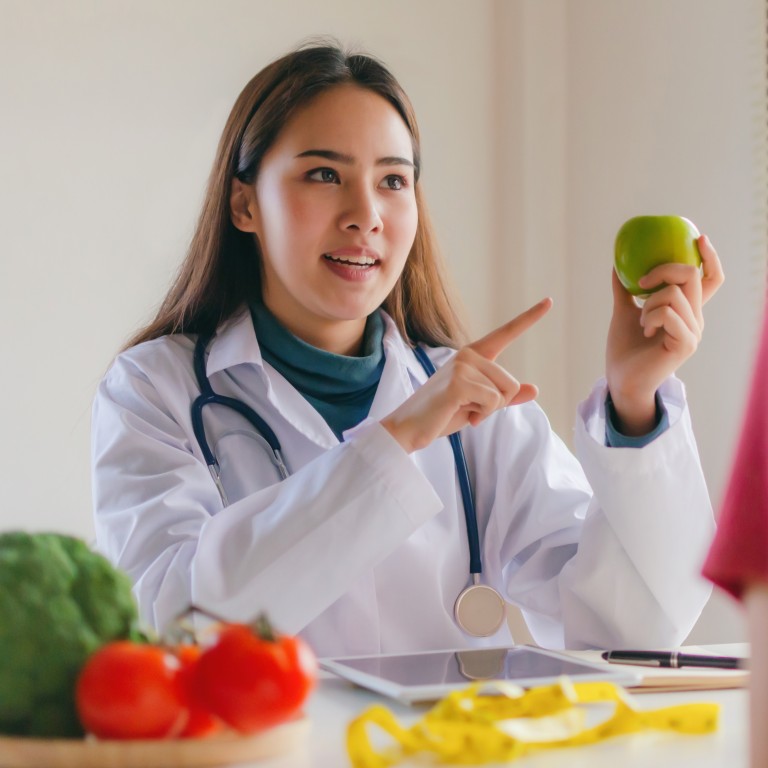
As you walk past the fresh produce section of your local market or grocery store, pause for a moment to consider the wondrous health benefits tucked inside the goods on display. This food is medicine.
It’s not only an apple a day that keeps the doctor away. Fruit and vegetables are excellent sources of important vitamins and minerals, such as vitamin A, vitamin C, calcium, folate and potassium.
Most are high in fibre, too, which keeps a body “regular”, leaves us feeling full for longer, and helps manage blood sugar and cholesterol levels.
They contain phytochemicals – powerful compounds that help strengthen the immune system, reduce inflammation, protect cells from damage, and may prevent chronic conditions such as cancer.

Many of us sometimes take the fruit and vegetables available in our local supermarket for granted. But this food is medicine that can keep us healthy and help fight disease. Photo: Shutterstock
To encourage more people to tap into this goodness, produce prescription programmes are cropping up in more places in the world.
These allow doctors to prescribe fruit and vegetables to their patients alongside traditional medications, and offer financial help to low-income patients to purchase fresh local produce.
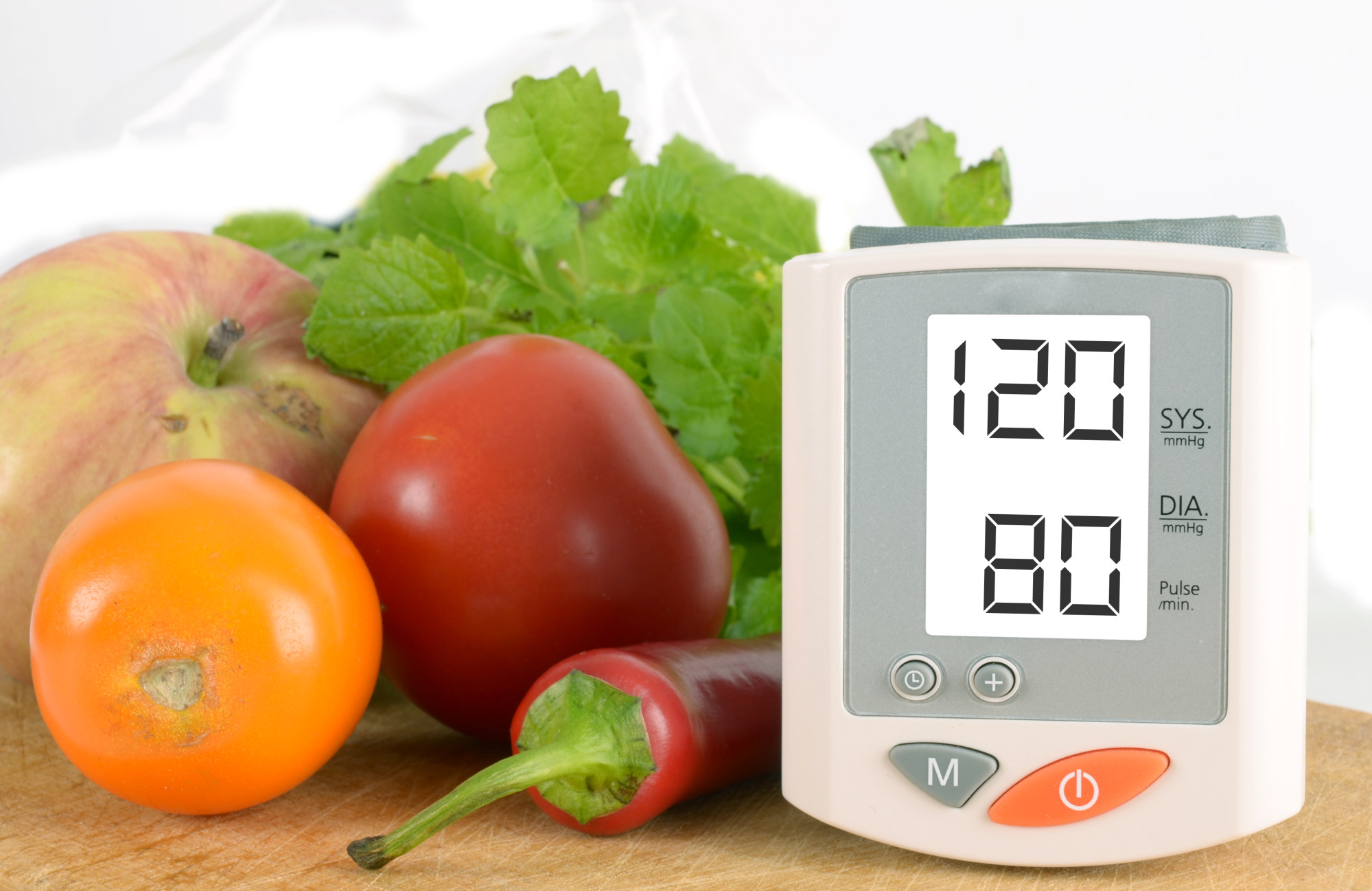
Adults at risk for heart disease who took part in produce-prescription programmes for an average of six months increased their intake of fruit and vegetables by nearly a cup a day – and lowered their blood pressure, body mass index and blood sugar level. Photo: Shutterstock
A United States study published in August in the American Heart Association journal, Circulation: Cardiovascular Quality and Outcomes, found that adults at risk from heart disease who took part in produce-prescription programmes for an average of six months increased their intake of fruit and vegetables by nearly a cup a day.
They also experienced a reduction in blood pressure, body mass index and blood sugar levels.
Other recent studies add to the evidence that consuming more plant foods can significantly improve our health.
Plant foods have the three macronutrients we need … for optimal health
Michele Wisla, a plant-based culinary health coach in Hong Kong
A study of over half a million Chinese adults published in May in The Lancet Regional Health – Western Pacific journal found that more than two-thirds of diet-related cardiovascular deaths could be linked to low intakes of whole grains, fruit, vegetables and nuts.
A low intake of fruit was the leading dietary risk factor for stroke, followed by a low intake of whole grains and vegetables.
A study published in May in the journal Food & Function showed that phytochemicals improve cholesterol and reduce the risk of obesity, diabetes and high blood pressure.
Those phytochemicals, or phytonutrients, are particularly abundant in colourful fruit and vegetables – think citrus fruits, berries and dark-green leafy vegetables.
According to Hong Kong plant-based culinary health coach Michele Wisla, increasing our fruit and vegetable intake can do a lot to prevent disease and improve our health.
“Plant foods have the three macronutrients we need – carbohydrates, protein and fat – in addition to the fibre, vitamins, minerals and phytonutrients needed for optimal health,” says Wisla, who is also a licensed instructor for Food for Life by the Physicians Committee for Responsible Medicine (PCRM).
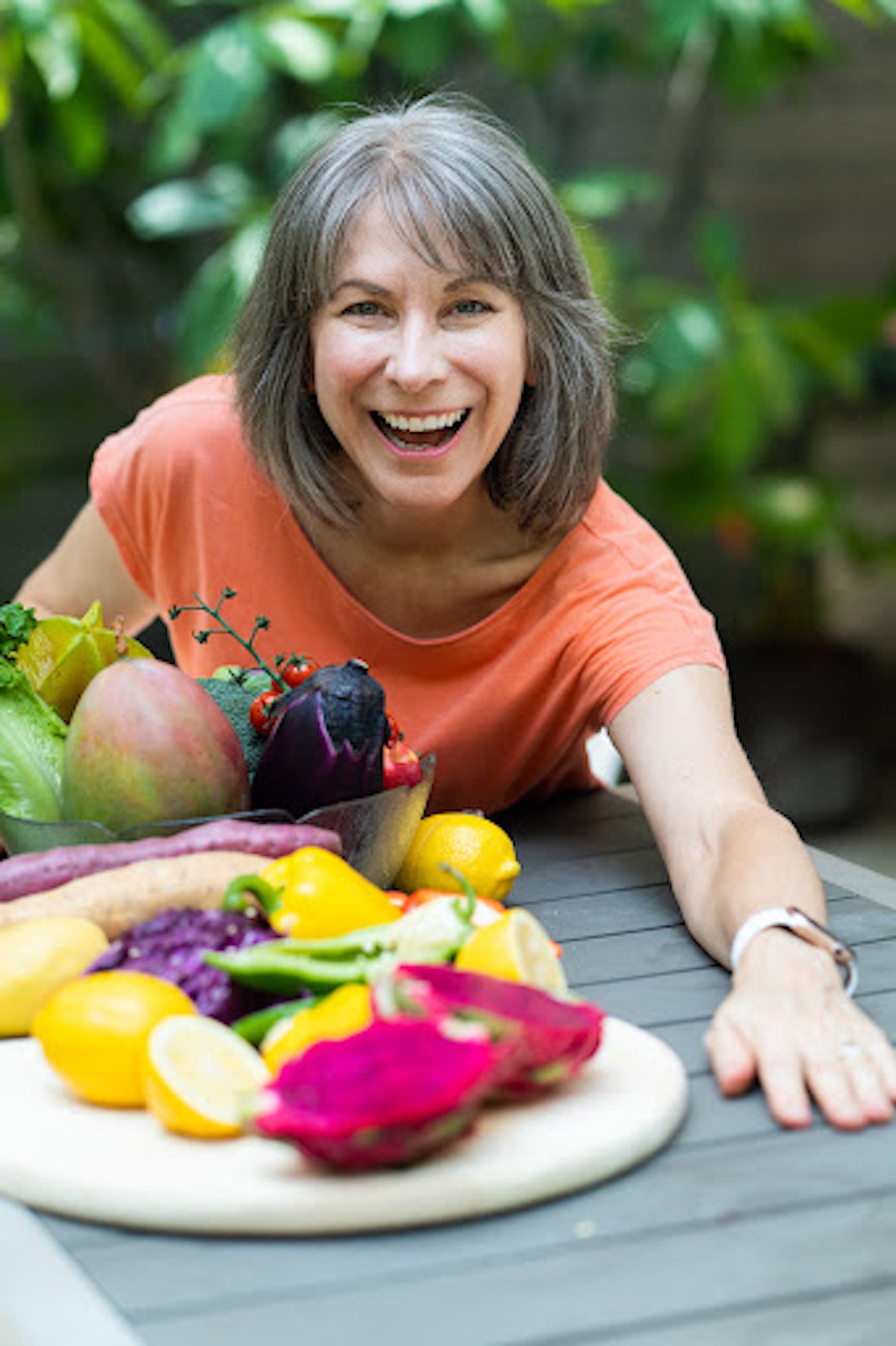
Michele Wisla says to eat a diversity of plant foods for maximum nutrition. Photo: Michele Wisla
“Besides fibre, phytonutrients are an important plant-only compound. They make our food colourful, flavourful and smell good.
“Phytonutrients have a different function from vitamins and minerals – they are the plant’s defence system and act like little warriors in our body. They help prevent disease.”
As fruit and vegetables are low in calories, you can also eat them without restriction, says Dr Anna Herby, a US-based clinical dietitian and nutrition education specialist for PCRM.
If you suffer from a chronic disease such as diabetes, cardiovascular disease or cancer, increasing your fruit and vegetable intake may help you better manage your condition or even reverse it.
“These foods can displace other foods in your diet that may not be so healthy and can also lead to weight loss since they’re low in calories,” Herby says.
“Weight loss is then helpful for managing and improving chronic conditions. In some cases, it’s possible to reverse these conditions, but for most people this requires a significant diet change.
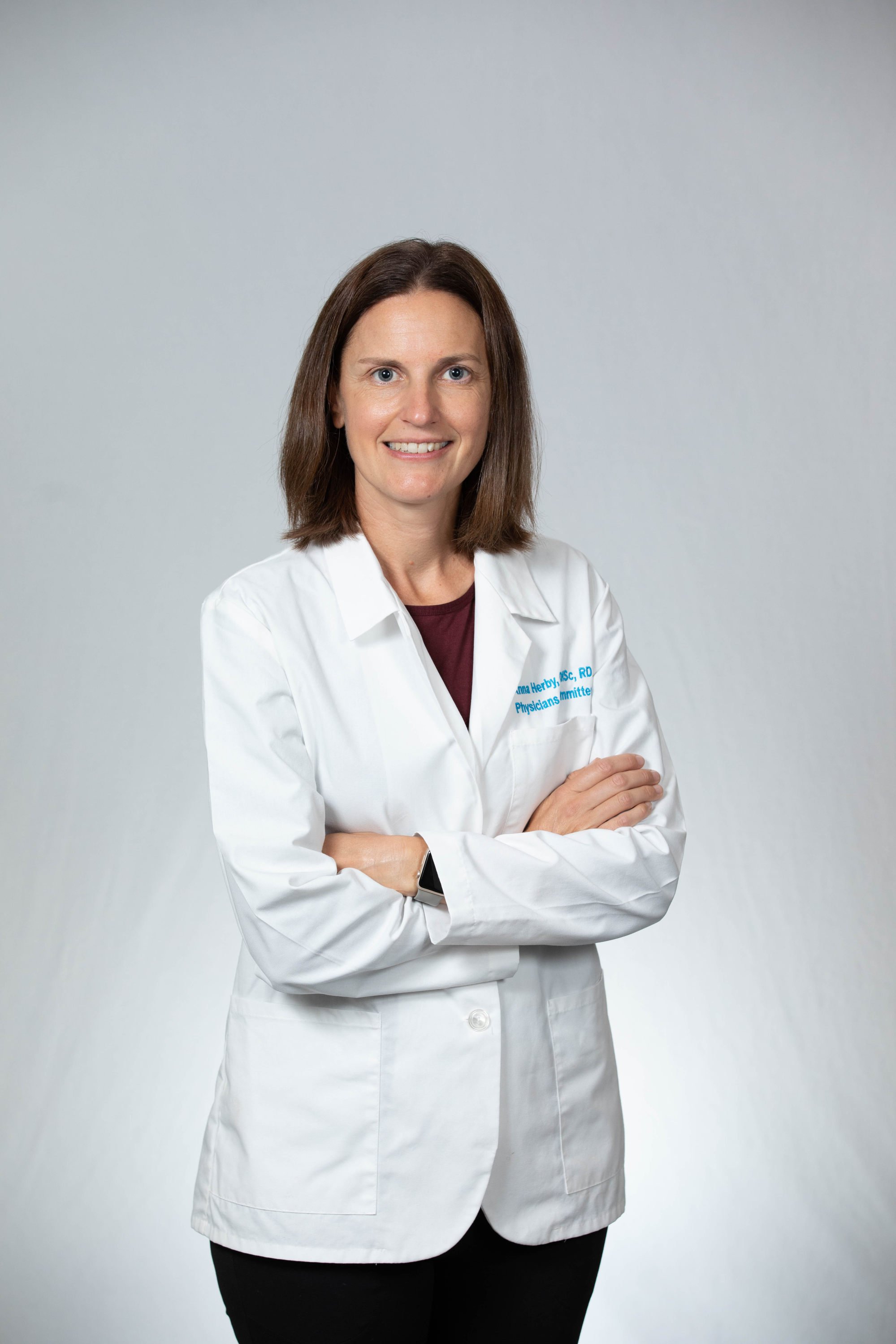
Anna Herby says that, as fruit and vegetables are low in calories, you can consume them without restriction. Photo: Physicians Committee for Responsible Medicine
“Increasing your fruit and vegetable intake is a fabulous start, but the next step is to centre your diet around plant-based foods – that is, fruit, vegetables, whole grains and legumes. All of these food groups together can be very powerful for disease reversal.”
Herby recommends eating three or more servings of fruit a day. A serving size is one medium-size piece of fruit, half a cup of cooked fruit or a quarter-cup of dried fruit.
There is no need to limit fruit in your diet, even if you have diabetes, she says. People who eat the most fruit have lower rates of diabetes than people who eat the least.
Be sure to consume five or more servings of vegetables per day. A serving size is one cup of raw vegetables or half a cup of cooked vegetables.
Besides eating these recommended amounts or more, diversity is important.
Wisla encourages her clients to aim for 30 different plants a week, and to go beyond fruit and vegetables by also eating beans, legumes, whole grains, nuts and seeds.

Eating plentiful and varied plant-based foods is recommended for optimum health, according to Wisla, and the more colourful the produce, the better. Photo: Shutterstock
“Diversity beats eating just a couple of plants exclusively. Each plant comes with its own portfolio of vitamins, minerals, fibre and phytonutrients.”
The more colourful the produce the better, Herby says.
“The colour from fruit and vegetables comes from their antioxidants and phytonutrients, and this is actually what the plants use to protect themselves from harsh conditions.
“They can protect us too, by neutralising cancer cells and helping our bodies to thrive. ‘Eating the rainbow’ means getting lots of variety in your diet, branching out to try new produce whenever you can.”
When it comes to vegetables, the best way to eat them is the way that you enjoy them the most. However, Herby suggests learning to love them without creamy sauces or cheese on top, and cooking them without oil or butter.
Steaming or quickly stir-frying is ideal for vegetables like kale, leafy greens or broccoli, since they can lose their nutrients in water when boiled. Boiling or baking is perfect for vegetables like potatoes and beets. And many vegetables are perfect raw, like carrots, celery and bell peppers.
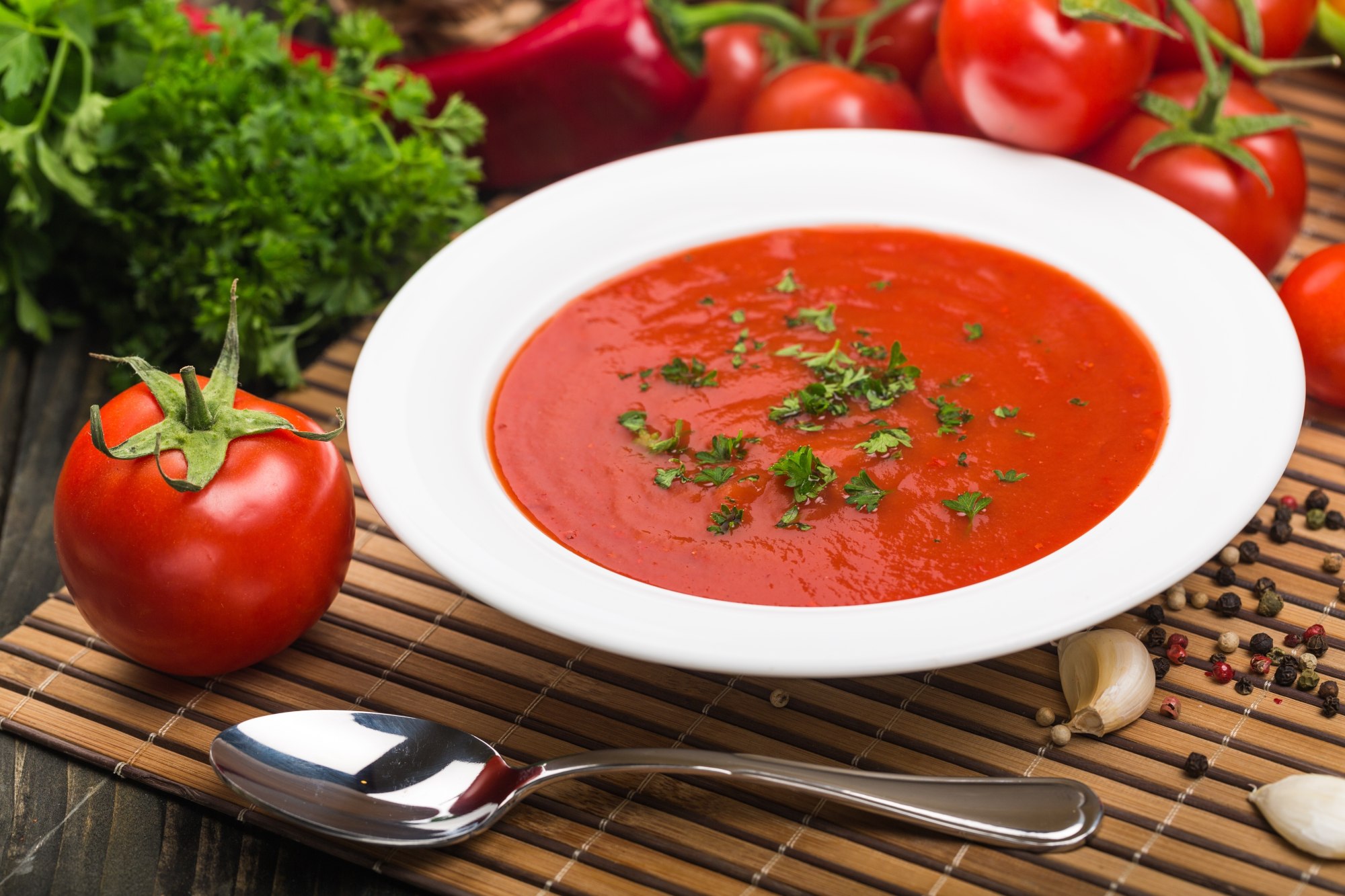
Some plants have different benefits depending on whether they’re eaten raw or cooked. Tomatoes are a great example of this. Photo: Shutterstock
“I advise eating a mix of raw and cooked vegetables, as some plants have different nutrients more available depending on if they’re raw or cooked,” Wisla says.
“Tomatoes are a great example. In their raw form they contain more vitamin C, but when cooked they have more lycopene, an antioxidant which may improve heart health, lower our risk of certain cancers and even protect our skin from the sun.”
Like what you read? Follow SCMP Lifestyle on Facebook, Twitter and Instagram. You can also sign up for our eNewsletter here.
News Related-
Using sites like LinkedIn can trigger imposter syndrome, study suggests
-
Why Gen Z fear they will raise a generation of ‘terribly behaved’ iPad kids, stoking TikTok debate about screen time
-
West Africa responds to huge diphtheria outbreaks
-
Study reveals which people are most likely to die from sepsis
-
How to stay safe over Thanksgiving as respiratory virus activity ticks up in parts of the US
-
Several more children sickened by fruit pouches tainted with lead, FDA says
-
Nevada judge rejects attempt to get abortion protections on 2024 ballot
-
What causes skin to itch? New research pinpoints a previously unknown factor
-
Traditional media more trustworthy for science news, poll suggests
-
Long-term use of ADHD drugs could bring higher risk of heart diseases – study
-
Nutrient found in beef and dairy products found to help fight cancer
-
Horror as fly found inside Missouri man’s intestines
-
‘Utterly unacceptable’ Lucy Letby was able to kill children like nurse Beverley Allitt, says inquiry chair
-
Abortion rates in US increased by 5% in 2021, the final year it remained a constitutional right under Roe: CDC
